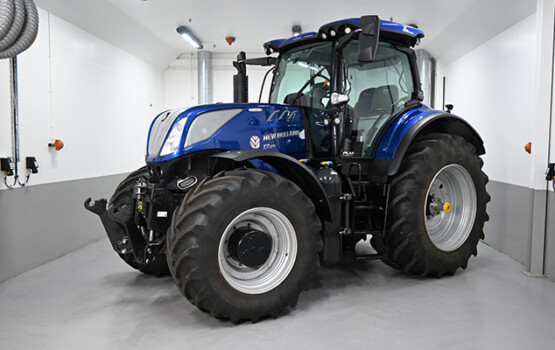Portal for more climate-friendly mobility
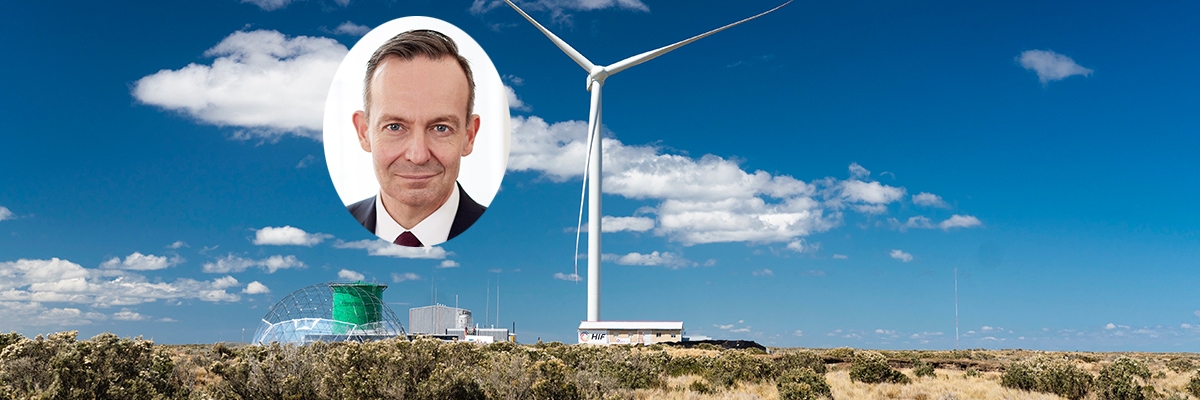
New opportunity for e-fuels and biogas
The EU is now in favour of technology neutrality after all. The phase-out of the combustion engine from 2035 onwards is on the verge of being abandoned, particularly as a result of pressure from Germany and its Federal Minister for Digital and Transport, Volker Wissing. But it remains to be seen to what extent e-fuels and biogas really will be admitted.
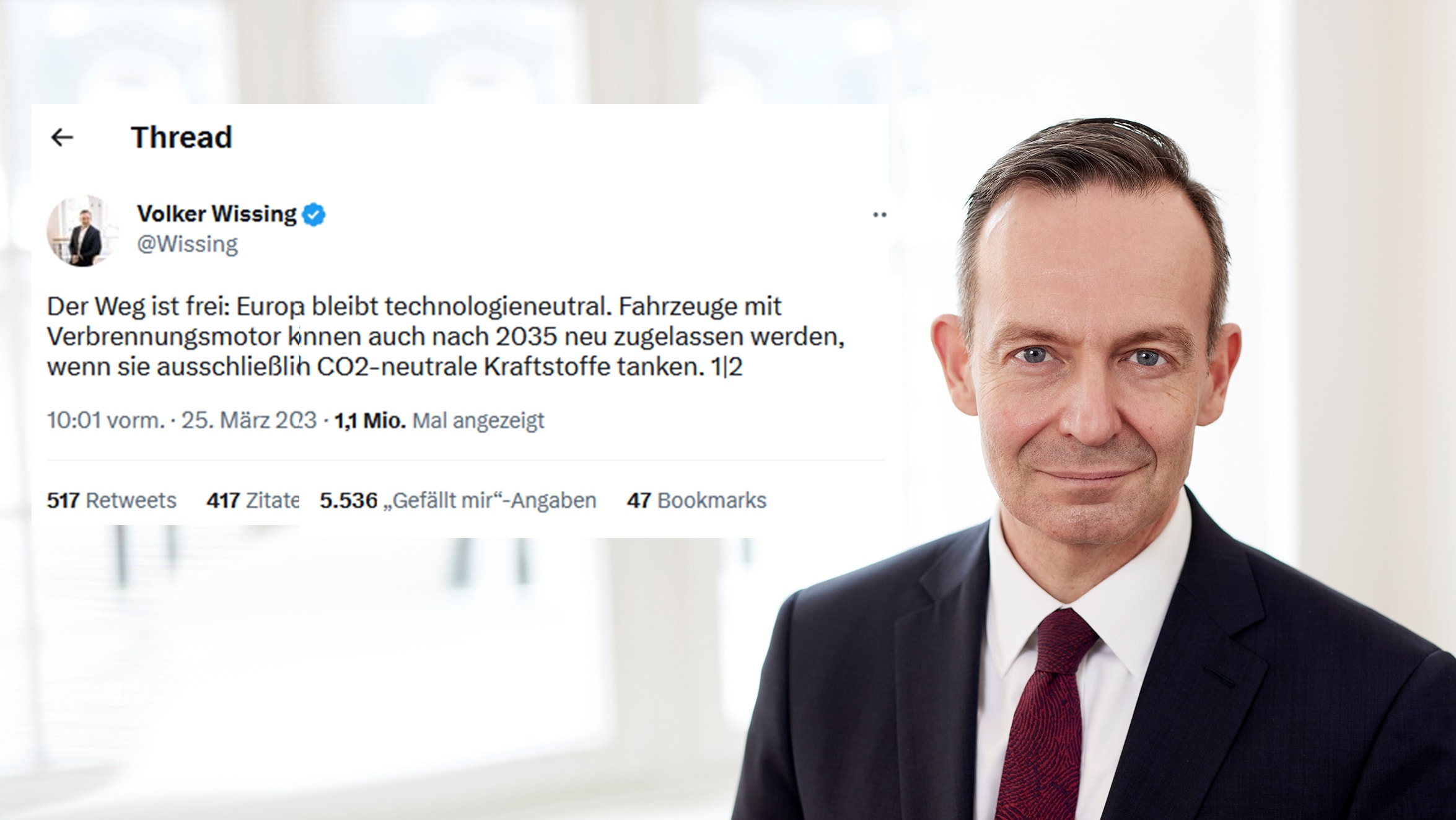 Source: VolkerWissing/Twitter
Source: VolkerWissing/Twitter
When he tweeted: “The path is clear: Europe will remain technology-neutral,” Federal Minister for Digital and Transport Volker Wissing made it clear last week that the combustion engine phase-out in Europe is off the table. As the FDP politician explained: “Vehicles with internal combustion engines can continue to be registered after 2035 providing they only use carbon-neutral fuels. We’re securing opportunities for Europe by providing important options for affordable climate-neutral mobility.” Frans Timmermans, EU Executive Vice-President and EU Commissioner for Climate Action, likewise confirmed the move on Twitter: “We’ve reached an agreement with Germany on the future use of e-fuels in cars. We will now work towards the adoption of the Regulation on CO2 Standards for vehicles as soon as possible.”
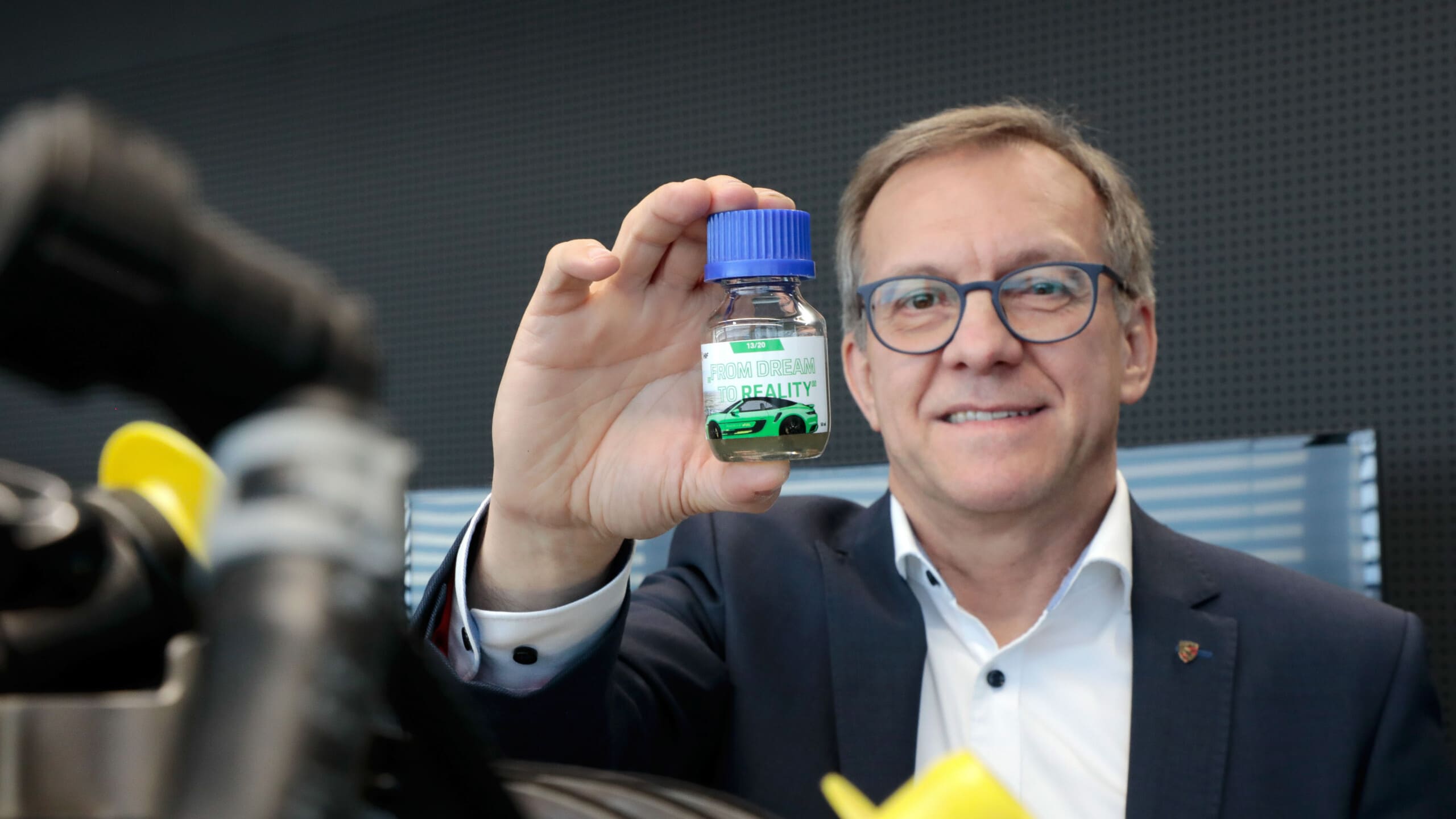 Sustainability has many facets: Karl Dums from Porsche shows a vial of e-fuels that can power a combustion engine just as sustainably as biogas or even bio-LNG/LBG. Source: Porsche
Sustainability has many facets: Karl Dums from Porsche shows a vial of e-fuels that can power a combustion engine just as sustainably as biogas or even bio-LNG/LBG. Source: Porsche
The EU had originally agreed on a so-called ban on combustion engines from 2035 onwards – actually a ban on powertrains that generate emissions, but this effectively amounts to a ban on petrol and diesel engines – but an exception is now to be made in the case of e-fuels. Germany in particular – along with Italy and other countries such as Bulgaria and Poland – announced that they would oppose this if e-fuels were not allowed. In other words, the EU is now paving the way for combustion engines that can run on e-fuels to able to be sold after 2035 as well – and not just electric cars.
At the same time, however, the EU is pressing for these vehicles to be equipped with a shut-off device: if fossil fuels are used for previously registered cars and commercial vehicles after 2035, the engines will be required to detect this and switch it off. It is still unclear whether the decision in favour of e-fuels also allows the use of biogas. Like e-fuels, biogas or liquefied LBG/bio-LNG comes from a sustainable source, allowing cars, light commercial vehicles and even large trucks to run on a virtually carbon-neutral basis.
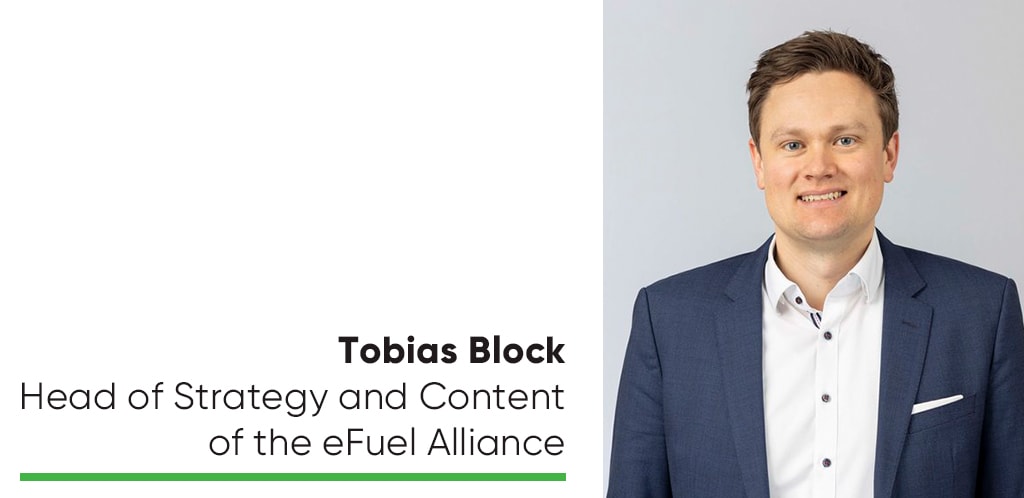
“Wow, what a great day. It probably won’t be perfect and we’ll still have to wait and see what the European Commission finally proposes. But this is an important first step towards taking a broader view of a vehicle’s ecological footprint. It makes no sense only to measure CO2 emissions at the exhaust pipe,” explained Tobias Block, Head of Strategy and Content at the eFuel Alliance. “I’ve been working on this for almost five years now.”
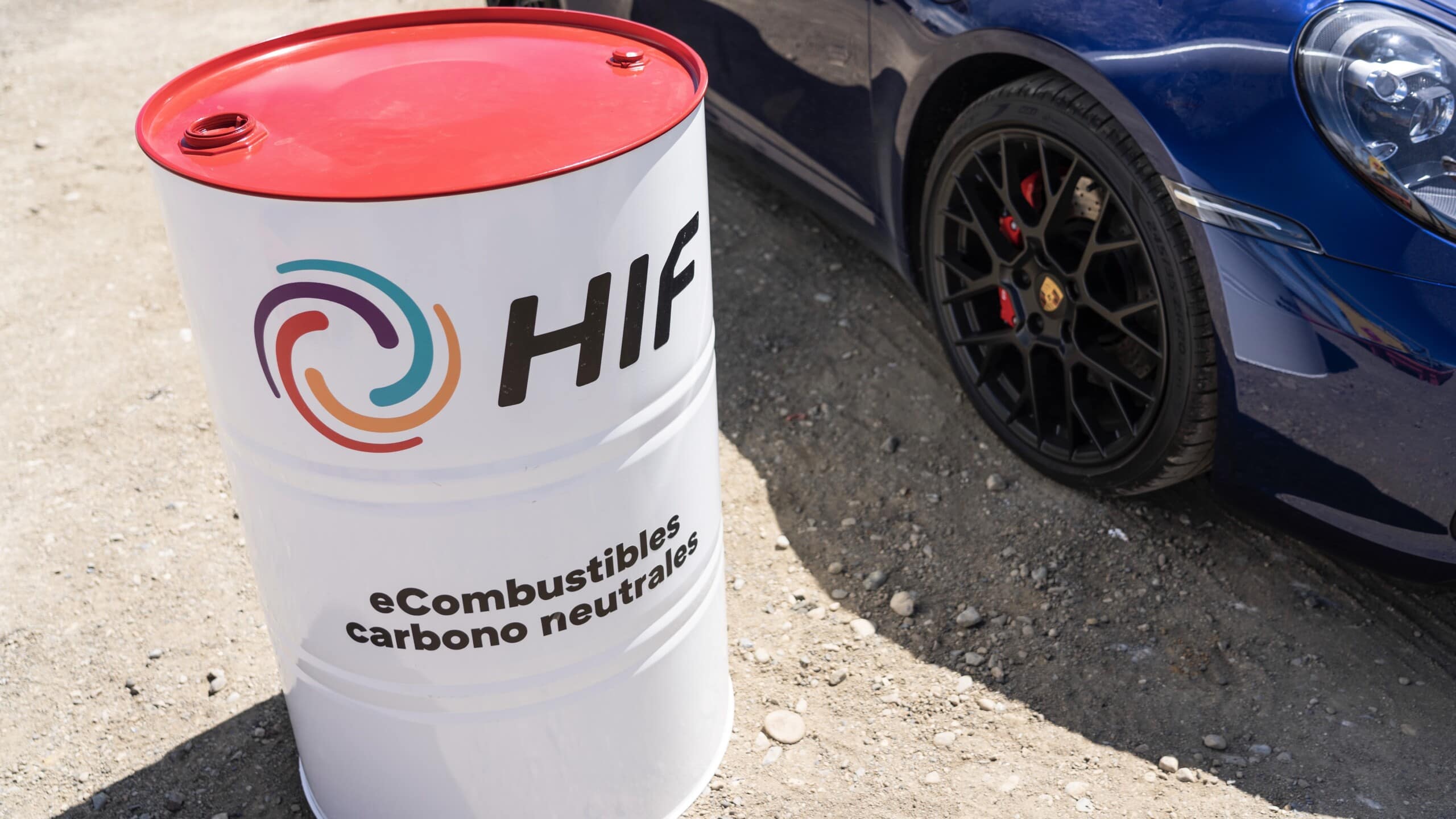 E-fuels have the huge advantage that they can also be used by the existing fleet. Source: Porsche
E-fuels have the huge advantage that they can also be used by the existing fleet. Source: Porsche
But just like the combustion engine phase-out itself, the abandonment of the combustion engine phase-out has yet to overcome a hurdle: all 27 EU member states have to agree to it. As things stand, the situation is far from clear: Latvia has already strongly criticised the amendment, for example. According to what some are saying within the EU, the current plan is to draft the new regulation and adopt it by the end of 2024 if possible. The important thing is that the door to technological neutrality in Europe has opened again.
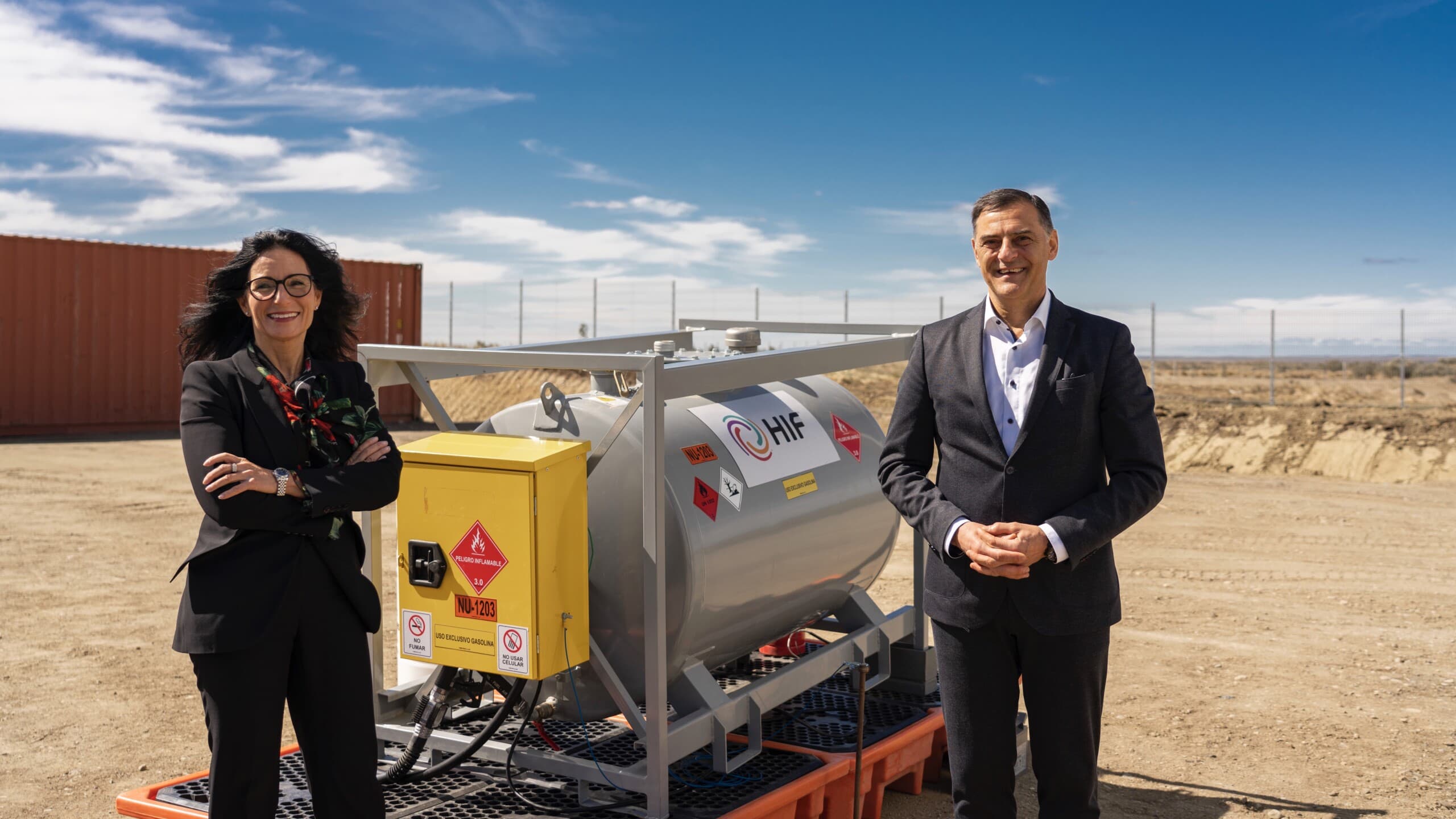 Barbara Frenkel, Member of the Executive Board for Procurement at Porsche AG, and Michael Steiner, Member of the Executive Board for Development and Research at Porsche AG. Source: Porsche
Barbara Frenkel, Member of the Executive Board for Procurement at Porsche AG, and Michael Steiner, Member of the Executive Board for Development and Research at Porsche AG. Source: Porsche
In addition to being welcome news for the many CNG drivers, this should also please e-fuels producers such as the sports car manufacturer Porsche, which has already started producing synthetic fuels on an industrial scale with other international partners in association with the Chilean operating company Highly Innovative Fuels (HIF). It means there is now planning security, as well as offering the possibility that not only new cars but also existing vehicles with combustion engines will be able to contribute to climate change– along with all CNG and LNG vehicles, which already use biogas for virtually carbon-neutral travel on European roads today. (tpf/jas, 30 March 2023)
You might also be interested in
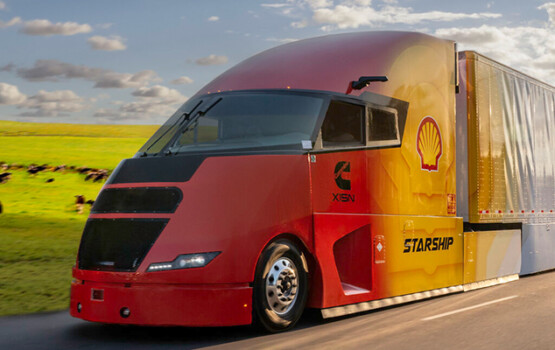
Shell Starship on record hunt
